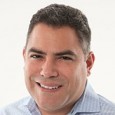“Super Xclusivo” is a popular TV gossip show in Puerto Rico. Recently while discussing on air Ricky Martin coming out as gay, the hosts of the show (a man and his female puppet) called him a “pato” (a derogatory term in Spanish for a gay man akin to “queer”).
While some people inside and outside the LGBT community will argue that “pato” is either not truly derogatory or not as derogatory as “maricon” (which most people would agree is equivalent to “faggot”), there were many people that were offended.
A quick response was mounted by LGBT Latinos and friends, including GLAAD, local New York area politicians and the Latino Commission on AIDS. Fellow LGBT Latino blogger Andres Duque on his blog Blabbeando has all the details.
The Latino Commission on AIDS reports that the TV station has apologized and the hosts of the show made an on-air apology. Click here for more details from the Latino Commission on AIDS, including links to the letters of apology and to video of the on-air apology in Spanish.
An obvious and direct connection to HIV/AIDS occurred in the aftermath of the gay slur airing. The human host of the show insulted Pedro-Julio Serrano, a well-known Puerto Rican LGBT and HIV/AIDS advocate, for his criticisms by referencing Serrano’s HIV status and sexual orientation. (Blabbeando promises more details about this aspect, I’ll pass along details).
A less obvious but no less direct connection to HIV/AIDS is fighting homophobia because defeating it lessens the risk for HIV infection among LGBT people. Not everyone gets that, so I commend the involvement of the Latino Commission on AIDS in righting this wrong.
Guillermo Chacon, the president of the Latino Commission on AIDS, definitely gets it. I recently interviewed him and here are excerpts related to this topic:
What are the challenges facing Latinos in fighting the virus?
There is still a denial in our community. It’s easy to avoid tough issues, especially issues that challenge your belief system or your comfort level.
We need to begin with our own families, challenge the level of homophobia, discrimination or stigma we have against communities affected [by HIV/AIDS]. After we acknowledge that, we can begin to take specific actions.
Can you speak about your experience being a straight ally?
People sometimes will say, “Oh, Guillermo is a nice gay man.” I take it as a compliment. Then some people will say, “He is one of the most willing straight men to connect with different people.”
Everything has to start with your own family and with you as an individual. I don’t like when people try to challenge others [without being] willing to challenge themselves.







Comments
Comments